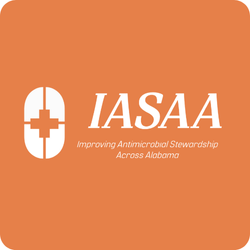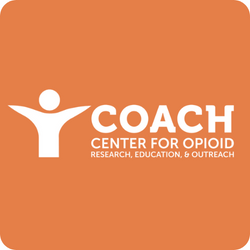Join our mailing list to receive CE updates
If you have questions about program offerings or need other assistance, please click HERE to provide your contact information, and someone will get back to you shortly.
Upcoming Courses
April/May
Gas Station Drugs: Emerging Substances, Hidden Risks, and Community Impact
April 8, 2026 @ 12 PM CT
Unregulated substances commonly sold in convenience stores and vape shops, often referred to as “gas station drugs,” are increasingly marketed as legal or wellness products despite significant health risks. This webinar examines substances such as kratom and delta-8/9 products, how they are marketed and used, and offers practical guidance on recognizing misuse, regulatory gaps, and effective prevention and intervention strategies.
Vaping Exposed: Health Risks, Youth Trends, and Prevention Strategies
April 22, 2026 @ 12 PM CT
Vaping has become one of the most common forms of substance use among adolescents and young adults, often fueled by flavored products and misinformation about safety. This webinar examines current youth trends, the health risks of nicotine and THC products, and equips participants with practical screening, counseling, and prevention strategies to support youth and families.
Opioids and Naloxone: Overdose Recognition, Response, and Prevention
May 20, 2026 @ 12 PM CT
The opioid crisis continues to affect individuals and communities, making overdose recognition and response critical skills. This webinar reviews current opioid trends, teaches participants how to recognize the signs of overdose, and provides practical guidance on safe naloxone administration and evidence-based response strategies.
Featured On-Demand Programs
Recorded Electronic Cigarettes and Vaping: What Every Pharmacy Professional Needs to Know
A fast, practical look at vaping: Explore the rise of e‑cigarettes, the real health risks, and whether they truly help with quitting smoking, while gaining clear, actionable guidance to support patients who want to stop vaping.
LAW SERIES:
Laws and Rules Governing Pharmacy-Related Entities in Alabama | Harrison College of Pharmacy
Pharmacy as a Profession in Alabama: Relevant Laws and Rules | Harrison College of Pharmacy
This CE presentation reviews Alabama-Specific pharmacy laws, rules, and regulations relevant to the profession including the Board of Pharmacy, pharmacy personnel licensure, and scope of practice important for a pharmacist to know and for review of the MPJE.
Laws Regarding Controlled Substances and the Controlled Substance Act
This CE presentation reviews federal, as well as Alabama-specific, pharmacy laws, rules, and regulations that pertain to controlled substances. These laws, rules, and regulations apply to pharmacists practicing throughout the Alabama health-system. Knowledge of this information is required in order for pharmacists to successfully pass the Alabama MPJE.
Laws Governing Prescriptions and Medications
This CE presentation reviews federal, as well as Alabama-specific pharmacy laws, rules, and regulations that pertain to prescriptions and medications. These laws, rules, and regulations apply to pharmacists practicing throughout the Alabama health-system. Knowledge of this information is required in order for pharmacists to succesfully pass the Alabama MPJE.
Understanding Pharmacy Laws and Rules Governing the Health System and Hospitals in Alabama
This CE presentation reviews Alabama-Specific pharmacy laws, rules, and regulations relevant to health-system and hospital settings which are important for a pharmacist to know and for review of the MPJE.
Understanding Federal Pharmacy Law
This CE presentation reviews federal pharmacy laws, rules, and regulations important for a pharmacist to know and for review of the MPJE.
Recent Updates for the Management of Community-Acquired Pneumonia
Community-acquired pneumonia (CAP) is one of the most common infectious diseases encountered in both the inpatient and outpatient settings. Additionally, it is a significant cause of both morbidity and mortality. Clinical practice guidelines for the treatment of CAP were published in 2019, and in 2025, a focused update to these guidelines was released, which focused on four primary questions. Healthcare providers must be familiar with both the 2019 and 2025 guidelines to provide the best treatment possible for patients while simultaneously providing appropriate antimicrobial stewardship to minimize the development of antimicrobial resistance.
Complementary and Alternative Medicine: A Path to Holistic Healing
This webinar will introduce pharmacists to common complementary health approaches used by patients, including nutritional, psychological, and physical approaches. Information about regulations for dietary supplements and homeopathy will also be covered. Case examples will be used to highlight potential complementary health approaches to recommend for patients and pertinent counseling points.
Recent Updates for the Management of Urinary Tract Infections
In 2025, new treatment guidelines were released that updated the definitions for uncomplicated urinary tract infections (uUTIs) from complicated UTIs (cUTIs), as well as updated the treatment recommendations for cUTIs, such as pyelonephritis. Healthcare providers must be familiar with these new recommendations to provide the best treatment possible for patients while simultaneously providing appropriate antimicrobial stewardship to minimize the development of antimicrobial resistance.
Controlled Substances: Prescribing and Dispensing Within the Law
There are numerous state and federal laws/regulations related to controlled substances. These can be confusing to prescribers and dispensers. This program aims to provide clarification regarding those rules and regulations as well as best practices.
Continuous Glucose Monitoring Education for the Practicing Pharmacist
Continuous glucose monitors (CGM) continue to gain use among people with diabetes. Pharmacists are uniquely positioned to help patients selection which CGM to use and support the interpretation of the glucose data that is retrieved from CGMs, which ultimately can impact care. This webinar will compare differences between CGMs and traditional blood glucose monitoring, discussion differences among CGM products, and offer methods to analyze data downloads from CGMs.
Advancing Tobacco and Nicotine Cessation Strategies for Low Socioeconomic Communities in Alabama
This recorded webinar will provide information for priContinuous Glucose Monitoring Education for the Practicing Pharmacistmary care providers and pharmacies on how to help patients quit smoking and vaping.
2025 Preceptor Development Webinar
This preceptor development program was developed to educate and assist preceptors with effective precepting techniques, understanding statues and rules for preceptors in the state of AL, as well as precepting in the age of AI. Engaging material will include interactive lectures and real-world examples.
This program has been approved by the Alabama Board of Pharmacy for continuing education credit to meet Preceptor licensure requirements.
Billing and Reimbursement for Community-Based, Pharmacist-Provided Clinical Services
This program equips pharmacists with essential knowledge and practical strategies to navigate billing and reimbursement for clinical services in community settings. Learners will explore the significance of provider status, distinguish between pharmacy and medical billing practices, and gain familiarity with key billing codes. The course also covers incident-to billing requirements, supervision models, and alternative revenue-generating approaches to support sustainable clinical service delivery.
Dementia and Medications: Unraveling the Complexities for Better Care
This program will provide a brief overview of different types of dementia and possible treatment options for each. The primary focus for this presentation will be on the management of Alzheimer dementia. This program will also address behavioral and psychological symptoms of dementia (BPSD) and possible treatment options for BPSD.
The Silver Lining: Navigating Diabetes in Older Adults
Approximately 11% of adults in the United States have diabetes and ~29% of adults that are greater than or equal to 65 years of age have diabetes. Annually the American Diabetes Association updates their Standards of Medical Care in Diabetes, including specific recommendations for older adults, while other endocrine organizations periodically update their treatment algorithms. Most recently, the International Geriatric Diabetes Society published recommendations. These evidence-based clinical practice recommendations are commonly utilized to provide comprehensive management for persons with diabetes. This presentation will discuss evidence-based options for the management of type 2 diabetes in the patient cases incorporated.
Optimizing Cardiovascular Care in Older Adults
As the population ages, the prevalence of cardiovascular disease (CVD) among older adults continues to rise, presenting unique challenges in clinical management. Pharmacists play a critical role in managing medications for older adults, who often present with multiple chronic conditions, including CVD, cognitive impairment, and frailty. This presentation equips pharmacists with the knowledge and skills to deliver patient-centered, evidence-based care for older adults with CVD. Attendees will explore therapeutic strategies tailored to the aging population, including the impact of functional status, comorbidities, and complexities of polypharmacy on management of CVD in older persons.
When Sleep Goes Wrong: Understanding Insomnia and Narcolepsy
This presentation will provide an update on the management of sleep disorders, specifically insomnia and narcolepsy. Sleep disorders have bi-directional relationships with many other co-occurring conditions; they may both impact and be impacted by these co-occurring conditions and related pharmacotherapy. Management approaches are limited overall and become more limited when considering certain patient specific variables.

 Facebook
Facebook X
X LinkedIn
LinkedIn Forward
Forward








